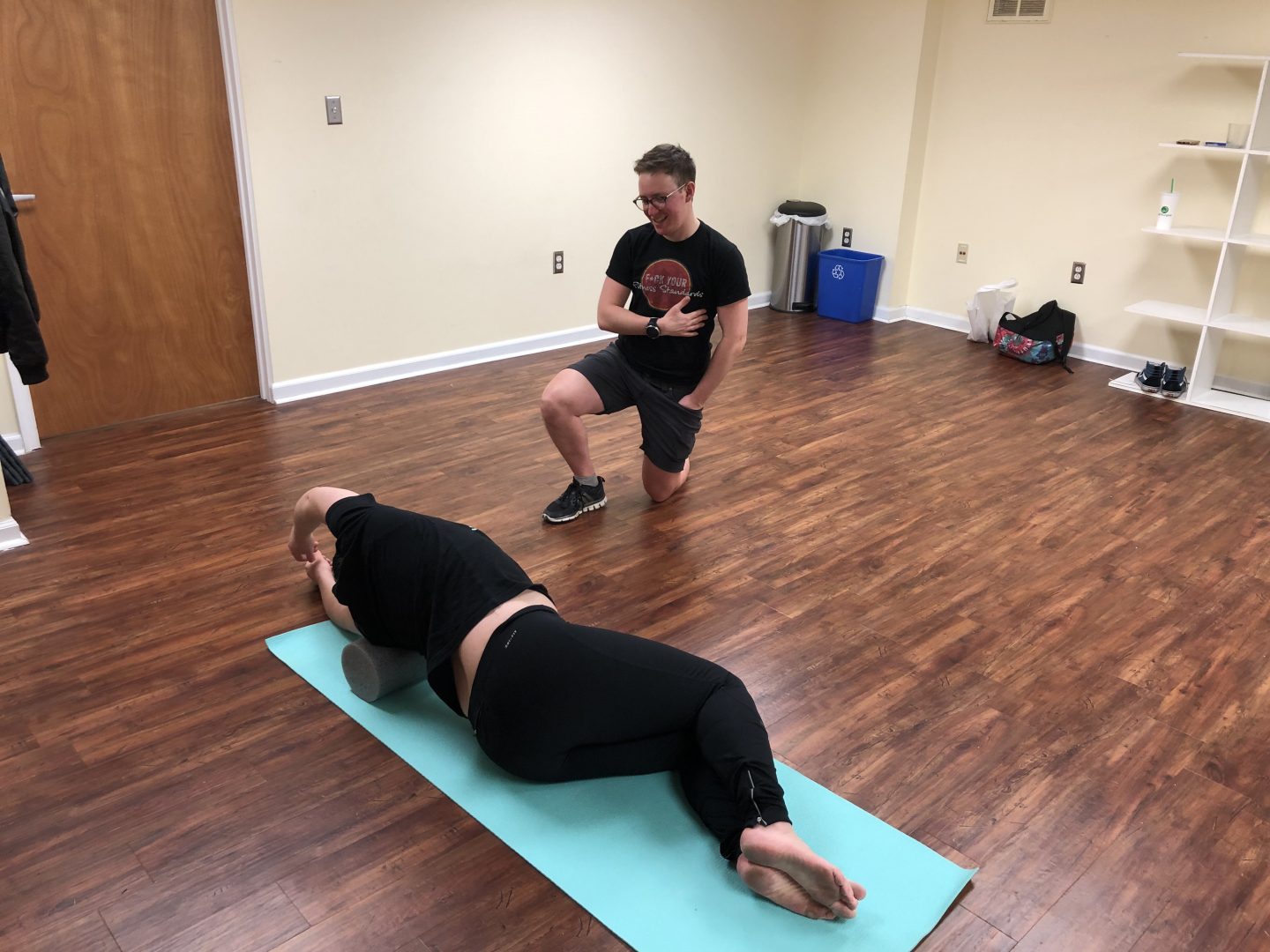
Asher Freeman is a nonbinary personal trainer who uses they/them pronouns. Lifting weights, Freeman said, was a task that helped them find a connection and comfort with their body.
“Lifting weights illuminated for me the extreme discomfort I had been avoiding by disconnecting from my body, and it gave me a window into the peace and presence that could come from learning to live comfortably within my skin,” Freeman said.
Many people, Freeman acknowledges, struggle to live comfortably within in their skin. One of Freeman’s goals as a personal trainer, as stated through their personal website, The Nonnormative Body Club, is to remind people that they have every right to inhabit, nourish and celebrate themselves.
Can you talk a little bit about your journey to becoming a personal trainer?
I began lifting weights about five years ago. At that point, I was not on hormones and had not had surgery. I was interested in figuring out if and how I could make my body look more masculine without medical interventions. While I was only ever marginally successful with changing how my body looked, weightlifting enabled me to do the much deeper work of changing my relationship with my body. As I focused on the form of each new exercise and gained awareness of what it meant to work various muscles, I began to feel for the first time what it meant to inhabit my own body rather than be totally disconnected from it. As a personal trainer, I aim to use fitness as a tool to support people in developing better relationships with their bodies.
Has personal training always been a career path that sparked your interest?
Throughout my 20s, I had jobs in youth work and community organizing. I see personal training as a continuation of my advocacy and organizing, using some new tools to do essentially the same work. I seek to use fitness education as a tool to strengthen communities by empowering individuals.

Being a personal trainer who is also nonbinary, have there been times your gender identity has gotten in the way of your work?
Yes. Every day. I’m nonbinary, and it’s always a tossup whether I will be read as male or female. There are rarely bathrooms or locker rooms in gyms where I feel comfortable. When I am perceived as male, I get a lot of side eye and some overt mocking for my size. I can still feel the panic I experienced when my fitness assessment professor told us that we would be taking off our shirts and using calipers to measure the fat on each other’s chest. I had to come out to my professor in order to explain why I would not be taking off my shirt. That all said, my experiences as a trans person working in the fitness world allow me to relate to my clients who also have bodies and experiences that do not play by the rules of the white supremacy and patriarchy.
Can you talk a little bit about the importance of representation within different fields of work as a personal trainer who is also nonbinary?
It can be intimidating to walk into a new space when we don’t see anyone who looks like us. It can be hard to believe that we belong, especially when we are trying something for the first time. So many of my clients tell me that they have never ventured away from the cardio machines at the gym because the rest of the gym is so dominated by cis men with massive muscles and virtually no fat. The truth is that these men don’t have any special skills or magical powers, they just have patriarchy on their side. Regardless of whether people work with me as a trainer, I hope that my presence in the gym as someone with a nonnormative body might make them feel a bit less alone. However, I know that as a thin, white, masculine and able-bodied person, I have to do a lot more than just show up to challenge the oppression that runs rampant in the fitness industry. Representation matters, but our work can’t end there. I’m excited to create and support alternative spaces that challenge the dominant narratives about what bodies are worthy of respect and love.

You recently held a trans wellness workshop on binding health. How did it go?
This project began in collaboration with Sweet Momentum, a trans-owned gym in my hometown, Portland, Oregon. We recognized the discomfort, pain, and mobility issues that so often result from chest binding and top surgery recovery and created a workshop to educate trans community about how to address these concerns through exercise. Since moving to Philadelphia, I have worked with Brian Flynn, a local massage therapist, to create new content and break the program into two separate workshops. We just held our first Philadelphia workshop on binding health, and we had a wonderfully sweet and thoughtful group of participants join us to learn together and build community.
Is there any information you think young trans or nonbinary individuals should know in regards to their body?
Find the activities that help you feel at home in your body. It could be exercise, but it could also be cuddling your dog, wearing your favorite outfit, lying in the sunshine, or getting a massage from your partner. Spending intentional time in our own skin can be incredibly healing to counteract the ways that transphobia and dysphoria can make our bodies feel foreign and far away.
Please email any questions or concerns about this story to: [email protected]


Be the first to comment